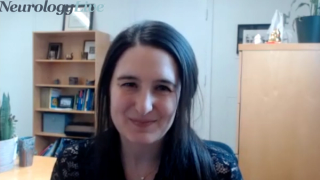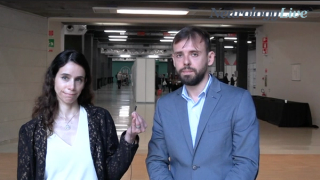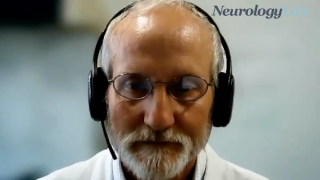
MS and Demyelinating Disorders
Latest News
Latest Videos

CME Content
More News

Catch up on any of the neurology news headlines you may have missed over the course of March 2024, compiled all into one place by the NeurologyLive® team.
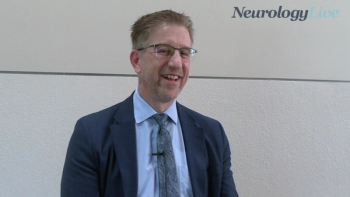
The staff neurologist at the Mellen Center for Multiple Sclerosis at Cleveland Clinic talked about findings from an interim analysis of the phase 2 CALLIPER trial assessing vidofludimus calcium in progressive multiple sclerosis. [WATCH TIME: 4 minutes]

Test your neurology knowledge with NeurologyLive®'s weekly quiz series, featuring questions on a variety of clinical and historical neurology topics. This week's topic is Alzheimer disease and dementia.

A recent study presented at the 2024 ACTRIMS Forum suggests that increased aerobic glycolysis in normal appearing white matter may be an early feature of multiple sclerosis.

New data from the TRAP-MS trial showed clemastine fumarate's association with increased disability accumulation in cases of non-lesional multiple sclerosis.

A recent study presented the 2024 ACTRIMS Forum showed that a subset of CD8+ T cells preferentially expanded in the cerebrospinal fluid of patients with multiple sclerosis.

A recent study presented at the 2024 ACTRIMS Forum revealed the association between paramagnetic rim lesions and subsequent cognitive decline in patients with multiple sclerosis.

New findings from a study presented at the 2024 ACTRIMS Forum revealed an increase in epigenetic age acceleration among a subgroup of patients with multiple sclerosis.

Using a 4-point score change on Symbol Digits Modalities Test, more than 80% of patients had either sustained improvement or no sustained change after 2 years of treatment with cladribine.

GA Depot, which remains under review by the FDA, showed a safe and tolerable profile in an additional 52-week extension period.

Take 5 minutes to catch up on NeurologyLive®'s highlights from the week ending March 1, 2024.

The director of Cleveland Clinic’s Mellen Center for Multiple Sclerosis Treatment and Research talked about recent findings on long-term impact of ozanimod in patients with relapsing-remitting multiple sclerosis presented at ACTRIMS Forum 2024. [WATCH TIME: 4 minutes]

A new study showed that NLRX1, a mitochondrial innate immune sensor, may serve as a promising therapeutic target to prevent inflammatory neurodegeneration in multiple sclerosis.

A recent study presented at 2024 ACTRIMS Forum showed that body mass index may influence disease progression in patients with multiple sclerosis.

These data, presented at 2024 ACTRIMS Forum, highlight the impacts neurofilament light has on patients with multiple sclerosis irrespective of race or ethnicity.

Long-term data from the phase 3 DAYBREAK trial affirmed sustained efficacy of ozanimod for relapsing forms of multiple sclerosis, with a high amount of patients who were relapse-free at 6 years.

Here's some of what is coming soon to NeurologyLive® this week.

Test your neurology knowledge with NeurologyLive®'s weekly quiz series, featuring questions on a variety of clinical and historical neurology topics. This week's topic is sleep disorders and hypersomnias.

Take 5 minutes to catch up on NeurologyLive®'s highlights from the week ending February 23, 2024.

Here's some of what is coming soon to NeurologyLive® this week.

Test your neurology knowledge with NeurologyLive®'s weekly quiz series, featuring questions on a variety of clinical and historical neurology topics. This week's topic is multiple sclerosis.

A recent study highlighted the potential of susceptibility-weighted image features as imaging biomarkers to differentiate patients with multiple sclerosis from those with neuromyelitis optica spectrum disorder.

Patients with aquaporin-4-IgG-seropositive neuromyelitis optica spectrum disorder exhibited higher urine pH compared to those with multiple sclerosis and healthy controls.

Take 5 minutes to catch up on NeurologyLive®'s highlights from the week ending February 16, 2024.
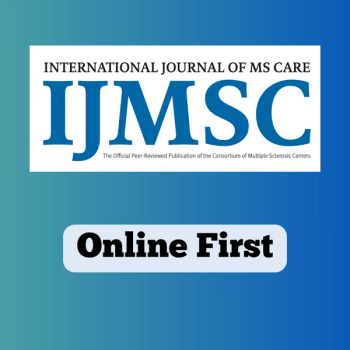
Here's the latest multidisciplinary MS research published online first in the International Journal of MS Care.







